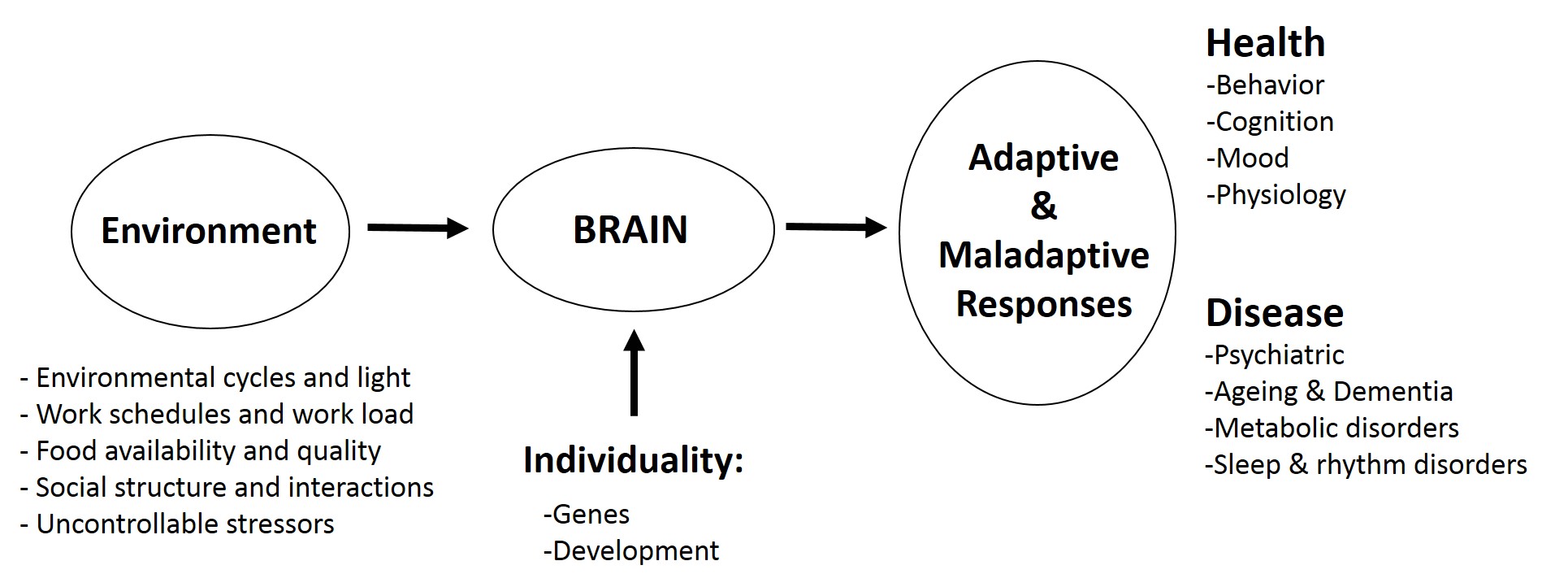Neurobiology
This expertise group studies the role of the brain in the capacity of animals and humans to adapt to challenges and opportunities in the environment. High resolution imaging of brain and behaviour, in vivo interrogation of metabolism and physiology, and targeted manipulation of cellular and molecular substrates are being employed to understand the neurobiology of adaptive behaviour, social communications and memory formation, and how these neurobiological processes are shaped by genetic background and fetal programming. These mechanisms are studied in relevant environmental conditions, such as the metabolic (e.g., available food quality and quantity, ambient temperature, workload) and temporal (i.e., daily and seasonal rhythms) constraints, often combined with the prevailing dominance hierarchy within a social context. We consider this “Evolutionary Medicine” approach a prerequisite to understand fitness strategies, sustainable health, and human diseases, and it may offer innovative strategies for treatment and prevention. This is urgently needed because the prevalence of psychopathologies (e.g., depression, schizophrenia), cardio-metabolic and eating disorders, and neurodegenerative derangements (e.g., Alzheimer’s disease, Parkinson) is increasing, which takes a tremendous toll on our society. Rather than only focussing on clinical expressions of these pathologies, we aim to unravel their aetiologies by investigating them in animal models with highest refinements and face validity for the human condition (such as in socially housed rodents), and – where possible - in in vitro systems (such as neuronal cultures). Social functioning (e.g., social withdrawal) and sensory information processing are key biological processes herein; animal models (Bruining et al., 2015) and novel smartphone technologies to assess these processes in human subjects (Eskes et al., 2016) have been developed and are available for future studies.
The Neurobiology group at the Groningen Institute for Evolutionary Life Sciences (GELIFES) comprises of three subfields that address fundamental and translational questions about healthy and diseased processes in brain and behaviour of animals and humans:
-
Behavioural Neuroscience
Billeter lab
Buwalda lab
Drion lab
Kas lab
Moorman lab
Olivier lab
Scheurink lab
Van Dijk lab

| Last modified: | 17 May 2024 3.52 p.m. |
